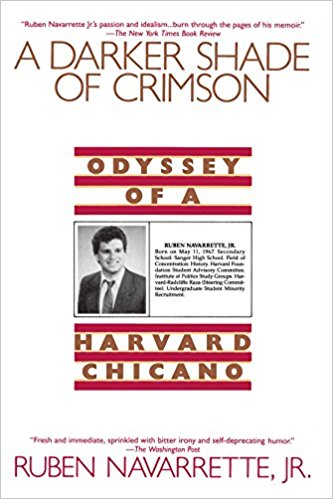How did this country of ours – which has its origins as an agrarian society founded not by politicians but by farmers – come to have such ambivalence toward farming and those who struggle every day to make a noble living at it?
It’s weather and dust. The more I think about it, the more I come back to weather and dust.
Those are the things my parents were so desperate to escape when, as pre-teens in the 1950’s, they resolved to one day get a job that let them work indoors. It didn’t matter what kind of labor there was to be done, only that this new task would take them out of the fields where my grandparents worked hunched over or atop ladders picking fruits and vegetables for $1.50 an hour.
Farm work has always been hard and thankless work that those who spend their days in offices are only too happy to avoid. I dare say that, in many cases, those who work indoors either feel sorry for those who work outside, look down on them, or don’t give them a thought.
So where does this leave those who spend their days outside, dodging weather and choking on dust – not just farmers but also farm workers and labor contractors, whose task it is to find what are usually foreign hands to do work that American hands will not do?
The great divide in America isn’t between rich and poor, native and immigrant, black and white, Trump voter and Trump hater. More than 200 years after George Washington retired from the presidency and returned to his plow at Mt. Vernon, the deepest and widest split is still between the country mouse and the city mouse.
You either grasp the importance of farming and understand the frustration of farmers, or you don’t.
As someone who was raised in farm country but has spent many years living in cities, it’s been my experience that most Americans don’t. Even if your parents or grandparents were themselves farmers, it only takes a few years of city life to wipe your memory clean.
Farming is not for the weak of heart. You’re at the mercy of pressure by labor unions, and subject to the ups and downs of the market. You get up early to feed the livestock, and you stay up late doing paperwork. You worry about having enough water to irrigate your fields and but not so much that you’re rained out.
You have to deal with insects one minute and politicians the next. Pick your parasite. You inherited the family farm and spend your whole life caring for it — only to have your own children announce that they have no interest in carrying on the family business. So maybe you’ll sell the land to the farm workers who have helped you care for it all these years. The farm will live on, even if you’re no longer part of it.
Adding insult to injury, farmers are accused of spraying the fields with cancer-causing pesticides, hogging the water supply, hurting the environment, polluting the air, exploiting their workers and more.
Now, with California’s unemployment rate at a mere 4.2 percent, and farmers in the Golden State having unprecedented difficulty finding workers to bring in the summer harvest, there is a new slander circulating about the folks in farming who keep alive my native Central California – a region of such agricultural abundance that it produces more than half the fruits and vegetables for the entire country, and still has enough product left over to ship around the world.
California also has unique labor needs. On farms in the Midwest where the crops are wheat, corn, cotton, or alfalfa, the labor demands are not as great since machines do the harvesting. But in California, there are dozens of crops that – even today, and for the foreseeable future – must be picked by hand, including tomatoes, peaches, plums, nectarines, wine grapes, avocados, mushrooms, lettuce, strawberries, blueberries, oranges, lemons and more.
The slander blames the victim. It suggests that the only reason that farmers can’t find enough workers to pick their crops is that farmers aren’t paying good wages. If only farmers paid more, the argument goes, U.S.-born workers in their teens and twenties would take these jobs.
My life experience, and a healthy dose of farm-bred common sense, tells me otherwise. I’ve heard this argument for the last 15 years, from journalists, TV pundits, politicians, radio hosts, and amateur economists. They all have one thing in common – the prideful and naïve belief that there is no job that American workers will not do if the wage is high enough. So, they reason, if there are jobs that Americans won’t do, it must be because they’re not being offered enough to do it.
But farm country is where this theory goes to die. I often wonder what that magic figure is. I remember the call that I got from a reader about 10 years ago who volunteered to pick lettuce in the Salinas Valley if he could get his asking price: $1,000 per week. Of course, he admitted, he had never before picked lettuce.
In fact, it seemed, the closest he had come to that particular crop was visiting a salad bar. So, I asked him, why did he think he deserved $1,000 per week. He said it was because, as a U.S. citizen, he knew his rights so he wasn’t going to be exploited like an illegal immigrant.
Rights, we have plenty of. We need perspective. To get it, I’ve come home to listen to the stories of farmers and labor contractors. These are the folks who deal everyday with weather and dust, and they’re getting fed up with being told how to make their living by people who work in air-conditioned offices in Washington DC and New York.
We meet in a local steakhouse, which is located about 20 minutes away from where I grew up. Before the salad is served, I start to tell them what is being said about them: That they caused their own labor shortage by paying wages that are too low to interest U.S. workers.
A few of them snicker. I learn that, in Central California, it is often workers and not employers who set the price.
Here’s how it works: In any given farm town, labor contractors–who are hired by farmers to act as middlemen and get paid a percentage of the total harvest–approach workers in the wee hours, maybe 4:00 AM. The workers are up, dressed, ready to work, and waiting at gathering spots all over town. They also have, thanks to scuttlebutt, a good idea about which employer is paying what wage to do what kind of work. From experience, they also know how difficult each job is, how long it would take to complete, and how much it’s worth.
Now it’s time to negotiate. When a labor contractor tells the workers that he needs hired hands, they then tell him what it will cost. If the labor contractor balks, fine. The day laborer who misses out on the opportunity of picking peaches can instead spend the day building homes, doing landscaping, cutting wine grapes, laying out sprinkler systems or doing a host of other jobs that need workers.
The demand gives workers the leverage. And, on top of all that, the price often changes from day to day. At present, I’m told, farmers are paying $20 per hour to pick mandarin oranges, and $25 per hour to pick tomatoes. And on the coast, about four hours away in Santa Barbara, according to media reports, avocado growers are paying as much $400 per day.
Still, no one can find enough workers. I ask the group what bothers them about how the national media covers agriculture, and I get an earful. They complain that reporters don’t take the time to visit farms and talk to the people who own them or work there. They claim that there is a general “lack of knowledge” about the agricultural industry and a reluctance to cite the positive contributions of those who help feed the nation.
Finally, they say, they’ve all but given up hope that issues like the labor shortage, or the need for temporary guest workers, or the ongoing debate in Congress about whether the United States should limit the number of “unskilled” immigrants might be covered in a fair way. After an hour or so of this, I learned three things:
- Farmers and ranchers are not responsible for the labor shortage; it’s a total lie for the right and the left to come together in a conspiracy of ignorance and suggest that farmers aren’t paying high enough wages, that they exploit workers, and that they want “open borders” so they can bring in more workers and pay lower wages.
- It is simply not the case that the three legs of the agriculture stool (farmers, farm workers, and labor contractors) are at war with one another. In truth, when one of these groups does well, the others do too. When one does poorly, so do the others. It’s not a predatory relationship. It’s a mutually dependent partnership.
- The labor shortage did not begin in the fields, and it won’t end there. It started with the American family. Too many parents have failed to give their children a work ethic. Many teenagers today don’t have summer or after school jobs. They’ll never work in the fields, not at any price. None of this is the fault of the agricultural industry.
Just because so many Americans have left the farm doesn’t mean they should leave behind the kind of common sense that grows there.





